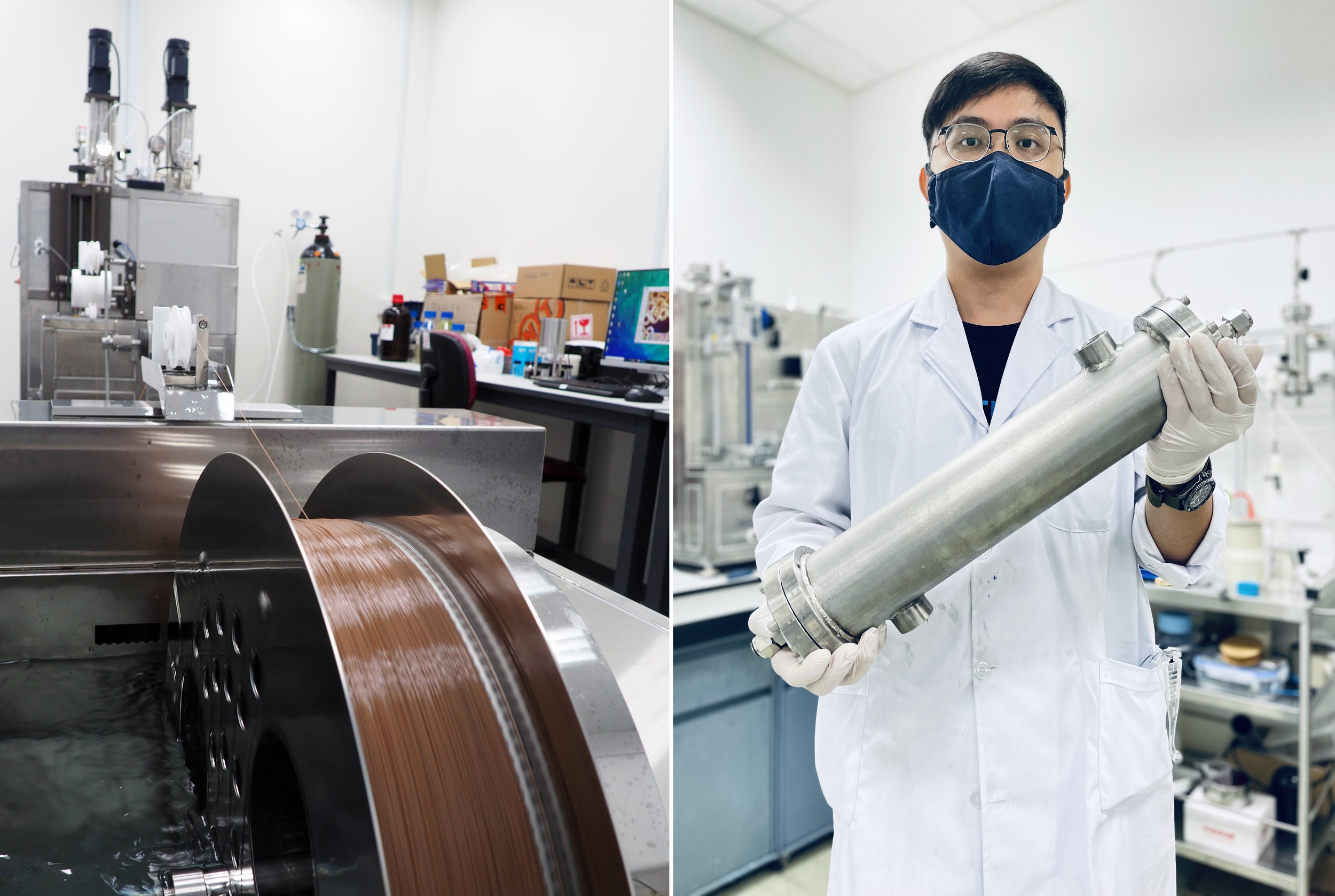As pressure grows on companies to reduce reliance on gas and oil, established processes even at industrial scales are being questioned, offering an opportunity for tech to step in. SepPure is looking to replace the complex gas-based distillation of oils with a membrane engineered at the nanometer scale, and its approach has attracted $12 million in a new funding round.
Oils of all kinds must be extracted and purified from their source, which might be a seed, fiber, or some other organic material. Of course, you can crush an olive and get a lot of the oil out of it, but nowhere near all of it; to do that, the pulp is immersed in a massive amount of solvent, like acetone or hexane, which pulls out the remaining oil. The resulting mixture is then heated, usually via natural gas or oil, and the solvent and oil separate.
This fuel-intensive process has persisted for decades, partly because the high temperatures required preclude the use of solar or wind as the heat source.
A potential alternative appeared in the water-purification space many years ago, which for a long time also used a distillation process to separate H2O from contaminants. Membranes can be engineered to allow through certain substances while others are blocked, letting, for instance, water molecules but not large organic ones. This approach has been taking over the water industry, because it’s cheaper, simpler, and uses less energy (look for “reverse osmosis” on the label).
SepPure founder and CEO Mohammad Farahani explained that the pressures of climate change and gas prices (not to mention cost savings) have caused others to look at membranes as a possibility. DiviGas, for example, created a membrane that separates hydrogen from carbon dioxide, and Membrion made one to remove heavy metals from water. But water isn’t a particularly harsh substance, unlike many chemical precursors to useful oils and other molecules.
Wastewater recycler Membrion makes light work of removing heavy metals
“It took a long time to get a good solution for water, and basically every company making membranes focused on water,” said Farahani. “Maybe only 10 years ago, people started to research chemical-resistant membranes. We think we’re at the same place as when water membranes were introduced 40 years ago — basically it’ll start to be implemented everywhere.”

SepPure makes what’s called a hollow-fiber nanofilter, which is exactly what it sounds like: a hollow polymer fiber with a surface engineered at the nanometer scale to allow only certain molecules through. Pack a bunch of them together and stick them in a tube, and push liquid through the tube to filter it. Though the membrane doesn’t separate 100% of the two substances, it vastly reduces the scale of the distillation step. The concept isn’t new, and in fact is used across the membrane industry, but where SepPure diverges is in its durability and compactness.
“Strong solvents can easily dissolve polymers — you have to make polymeric membranes using solvents, but then they need to withstand solvents. That’s a challenging thing and a lot of research was done to get there,” said Farahani. “The beauty of what we’ve done is creating fibers to withstand harsh chemicals, high temperature, and high pressure.”
Water and gas aren’t so demanding in those categories, so they’ve received the bulk of the attention, but now a version exists that can split off oils from solvents, or other valuable molecules from a similarly difficult mixture. That has applications in any industry that still uses distillation due to the fragility of old membrane processes — and there are a lot. Separation processes make up a meaningful proportion of global energy use and emissions.
SepPure has a competitor in Germany’s Evonik, which creates a similar product. But Farahani said that while this earlier version of the technique is fine for high-margin products like in the pharmaceutical industry, it’s too slow and bulky to use in high-volume, low-margin processes like food oil production.

Filters tend to come in a standard size: a pipe 4 inches in diameter and 40 inches in length. SepPure claims it can put five times as much membrane in that space, improving efficiency and reducing cost: push five times as much stuff through the same number of pipes, or filter the same amount in far less space. And that’s without reckoning for increased pressure and other combinatorial factors.
Overall, through these gains and the reduction of fuel-based heating, Farahani estimates they could reduce the cost of producing (for example) 100,000 tons of oil in a year from around $7.5 million to about $2.5 million. And apparently the filter fibers, once exhausted after a couple years of use, can be reused to create flame-retardant fabrics.
The $12 million Series A round was led by SOSV, with participation from Anji Microelectronics, Real Tech Fund, Seeds Capital, EPS Ventures, and others. The company previously raised $2.5 million in 2019.
The money will be used to complete construction of its first filter production facility, in Singapore.
“As soon as we begin implementing our technology solutions at customer sites, we will quickly reach maximum capacity. In anticipation of growing demand for our modules, our team is already working on expansion plans,” said Farahani.






























Comment